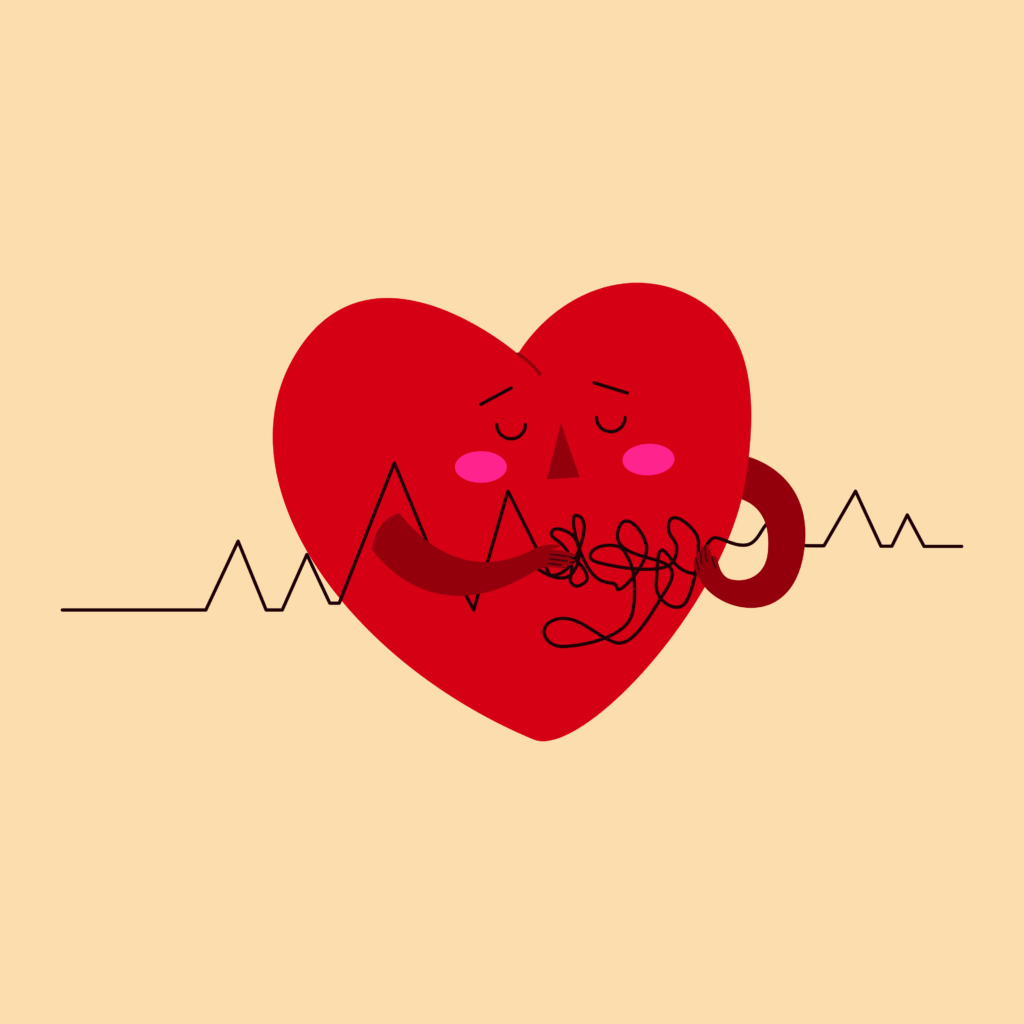The human body is a complex network of systems working together to maintain balance and keep us alive. One of the most critical systems in this network is the autonomic nervous system (ANS), which regulates involuntary bodily functions such as breathing, digestion, and heart rate. Within the ANS, the sympathetic nervous system (SNS) plays a vital role in controlling the heart, particularly in response to stress, exercise, and other stimuli.
Understanding the connection between the sympathetic nervous system and the heart can help us better manage heart health, stress levels, and overall well-being. In this article, we’ll explore how the SNS affects heart function, its role in the “fight-or-flight” response, and how we can maintain a healthy balance in this powerful system.
What Is the Sympathetic Nervous System?

The sympathetic nervous system is one half of the autonomic nervous system, with the other half being the parasympathetic nervous system (PNS). While the PNS promotes relaxation and recovery, the SNS is responsible for preparing the body for action. It does this by increasing heart rate, dilating airways, and mobilizing energy stores when the body perceives stress or danger.
Fight-or-Flight: The SNS in Action

When faced with a stressful situation, whether it’s a real threat (like an approaching car) or a perceived one (like public speaking), the sympathetic nervous system kicks into gear. This response, known as the fight-or-flight response, helps the body react quickly by:
✔ Increasing Heart Rate (Tachycardia) – The SNS signals the heart to pump faster, ensuring oxygen-rich blood is delivered to muscles and organs.
✔ Raising Blood Pressure – Blood vessels constrict, directing more blood to essential areas like the brain and muscles.
✔ Boosting Energy Availability – The liver releases glucose for a quick energy boost.
✔ Dilating Airways – Breathing becomes faster to increase oxygen intake.
Once the perceived danger is gone, the parasympathetic nervous system takes over, slowing the heart rate and restoring the body to a relaxed state.
How the Sympathetic Nervous System Affects the Heart

The SNS has a direct impact on heart function through a series of neural and hormonal mechanisms.
1. The Role of Neurotransmitters and Hormones
The SNS influences the heart through neurotransmitters like norepinephrine (noradrenaline) and hormones like epinephrine (adrenaline), both of which stimulate the heart to work harder and faster.
- Norepinephrine is released from sympathetic nerve endings and binds to beta-adrenergic receptors on the heart, increasing heart rate and force of contraction.
- Epinephrine, produced by the adrenal glands, amplifies this response, ensuring the body is fully prepared for action.
While this response is essential for survival, chronic overactivation of the SNS can lead to health issues, particularly affecting the heart.
2. Chronic SNS Activation and Heart Disease
While short-term SNS activation is helpful in emergencies, prolonged overactivation can contribute to cardiovascular problems, including:
🚨 Hypertension (High Blood Pressure) – Constant SNS stimulation keeps blood vessels constricted, increasing blood pressure over time.
🚨 Arrhythmias (Irregular Heartbeats) – Excess SNS activity can lead to rapid, erratic heart rhythms that may be dangerous.
🚨 Heart Failure – Over time, the heart may become overworked, leading to weakened heart muscles and inefficient pumping.
🚨 Atherosclerosis (Plaque Buildup in Arteries) – Chronic stress and SNS activity contribute to inflammation and damage to blood vessels, increasing the risk of heart attacks and strokes.
Balancing the Sympathetic Nervous System for Heart Health
Since excessive SNS activity is linked to heart disease, finding ways to balance this system is essential for maintaining heart health. Here are some practical strategies to regulate the SNS and support cardiovascular function.
1. Stress Management Techniques

Since stress is one of the primary triggers of SNS activation, effective stress management can help keep your heart healthy.
🧘 Meditation & Deep Breathing – Practices like mindfulness meditation, yoga, and slow, deep breathing activate the parasympathetic nervous system, counteracting SNS dominance.
🎵 Listening to Music – Calming music has been shown to reduce heart rate and lower cortisol, the stress hormone.
🌿 Spending Time in Nature – Exposure to green spaces helps reduce SNS activity and promotes relaxation.
2. Regular Physical Activity

Exercise is a double-edged sword when it comes to SNS activity. While intense exercise temporarily activates the SNS, regular moderate exercise helps condition the body to handle stress better, reducing long-term SNS overactivation.
🏃 Aerobic Exercise – Activities like walking, jogging, and cycling improve heart rate variability (HRV), a sign of better autonomic balance.
🧘 Mind-Body Exercises – Yoga and Tai Chi help reduce SNS dominance while improving heart function.
3. Healthy Diet Choices

Certain foods help regulate SNS activity and keep the heart healthy.
🥦 Eat More Magnesium-Rich Foods – Magnesium (found in leafy greens, nuts, and whole grains) helps relax blood vessels and counteract SNS overactivity.
☕ Limit Stimulants Like Caffeine – Excessive caffeine can overstimulate the SNS, leading to palpitations and high blood pressure.
🧂 Reduce Salt Intake – High sodium consumption increases blood pressure and enhances SNS activity.
4. Prioritizing Sleep

😴 Lack of sleep increases SNS activity, leading to higher heart rates and blood pressure. Aim for 7-9 hours of quality sleep per night to keep your nervous system in balance.
5. Breathing Techniques for Instant SNS Regulation

Practicing deep breathing can immediately reduce SNS activity. Try:
🫁 4-7-8 Breathing – Inhale for 4 seconds, hold for 7 seconds, and exhale for 8 seconds. This method calms the nervous system and lowers heart rate.
Give Your Heart the Care it Deserves

The sympathetic nervous system plays a crucial role in regulating heart function, helping us respond to stress and emergencies. However, chronic overactivation can lead to serious cardiovascular issues, including hypertension, arrhythmias, and heart disease.
By incorporating stress management techniques, regular exercise, a heart-healthy diet, and quality sleep, we can keep our SNS in check and promote overall heart health.
Understanding the connection between the SNS and the heart allows us to take proactive steps toward a healthier, more balanced life. So take a deep breath, relax, and give your heart the care it deserves! ❤️


